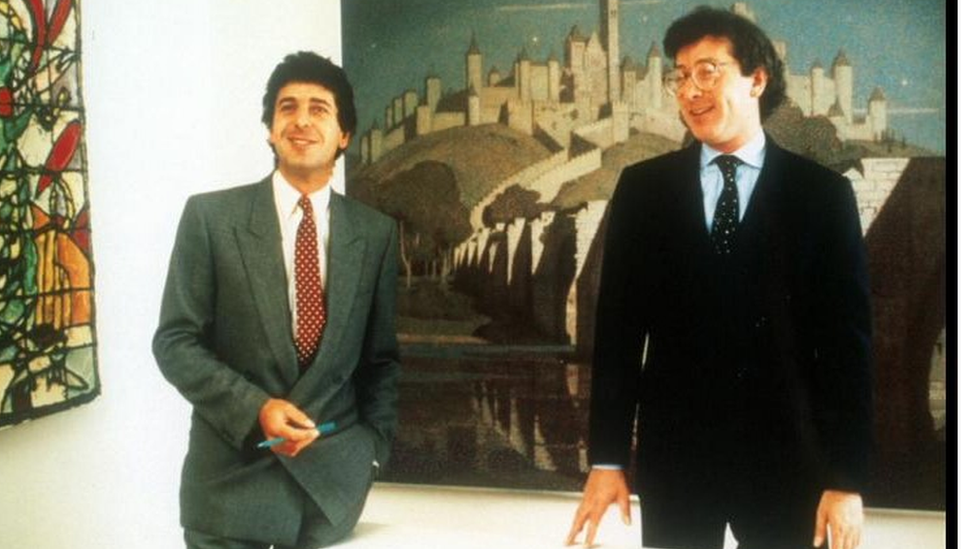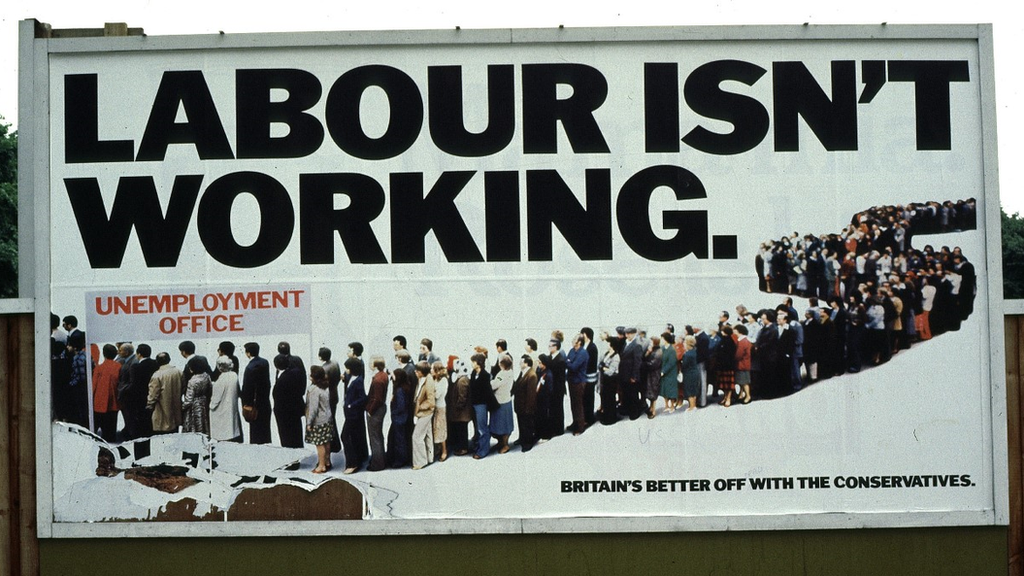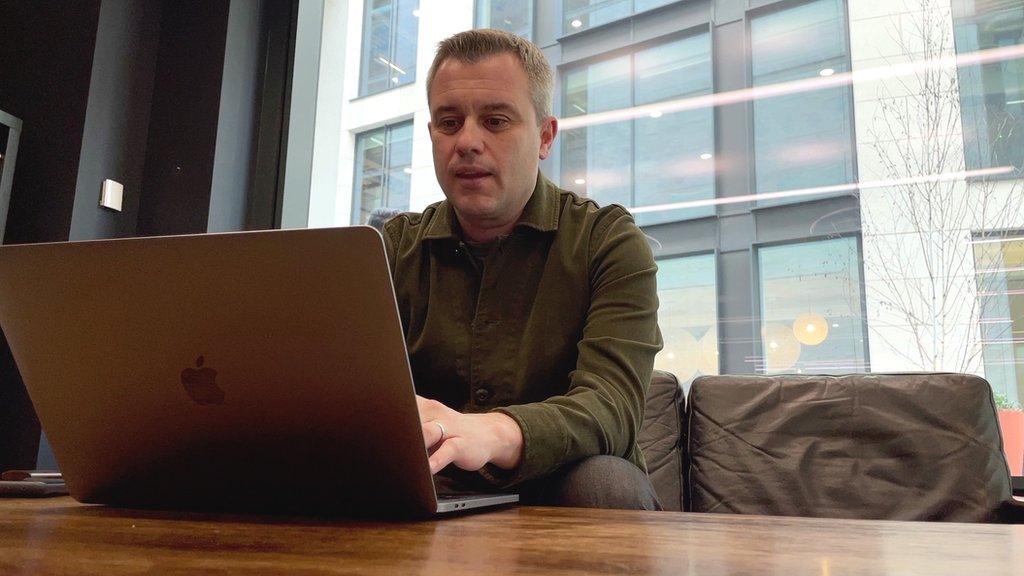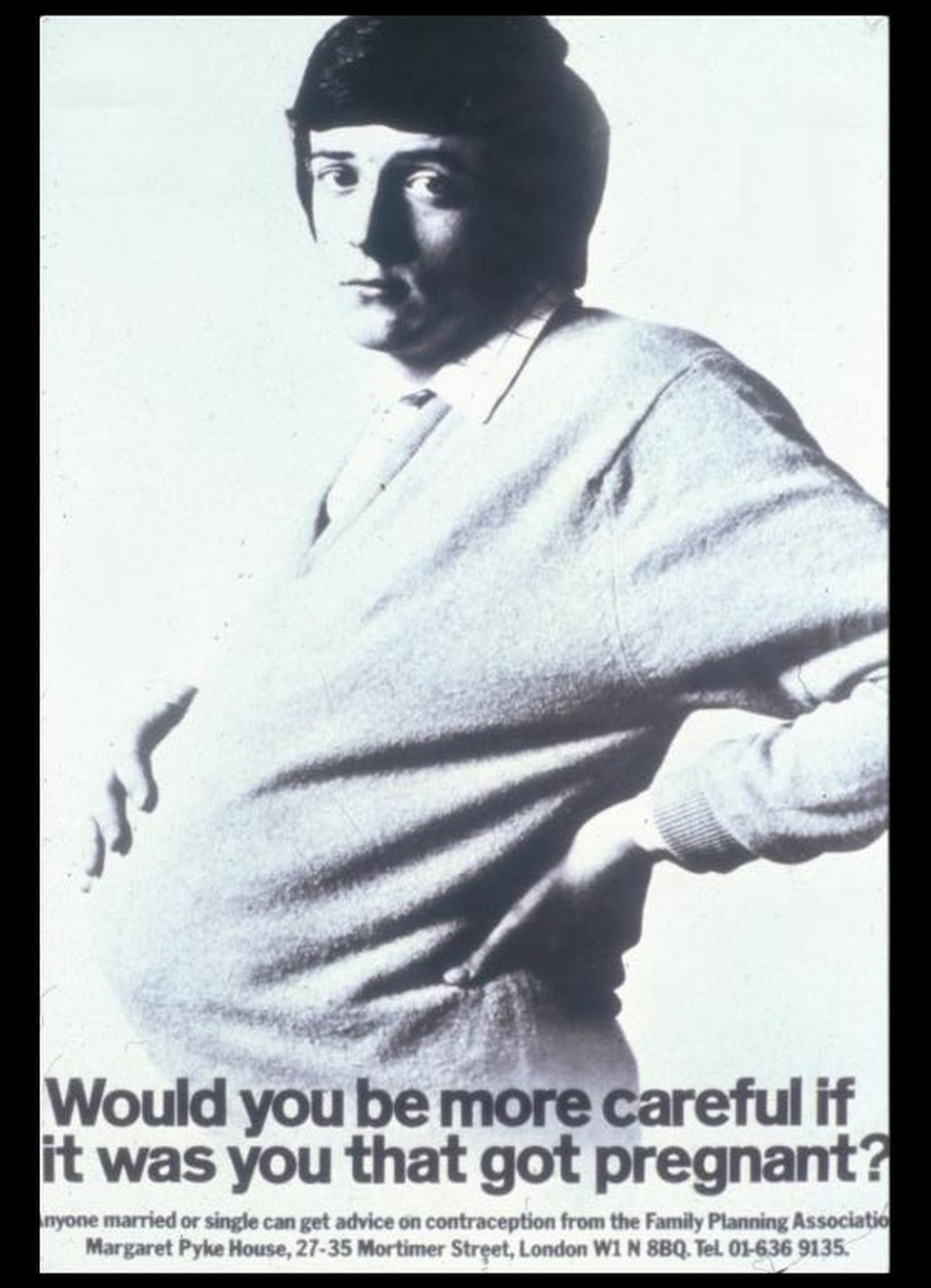'I went back to the north with my tail between my legs'
- Published
Chris Kay shares two pieces of business advice
"I don't think brands today have to be political, I think they have to be clear on their purpose," says Chris Kay, CEO of advertising firm, Saatchi & Saatchi.
And by purpose, Mr Kay means taking a position on the values they want to act on and defend - those could include anything from gender equality to environmental responsibility.
Consumer companies such as clothes shops or fast-food chains, are finding themselves under increasing pressure to take a public stance on issues their customers care about, from gender identity politics, to racial justice and the war in Ukraine.
It's a tricky balancing act and recently, companies such as Coca-Cola, Decathlon and McDonald's, among others, faced negative hashtag campaigns against them online, and threats of boycotts, for continuing to do business in Russia initially.
Younger people are more likely to expect their favourite brands to have a social and political conscience. Mr Kay describes this as a new kind of scrutiny, which impacts the way advertising agencies work to craft a company's public image.
He asks his clients to have a conversation about what values the company really wants to reflect.
"What's their role in the world? What's the point of view they are going to help consumers with?", are among his questions - and he says are best approached as an open conversation.
"If you are clear about your purpose, whatever happens in the world, whether it's say, International Women's Day, the morals you have in the boardroom, [allow] you to react to whatever is happening."

The Saatchi brothers' advertising firm would become synonymous with the Conservative Party in the 1980s
Chris Kay became CEO of Saatchi & Saatchi in the summer of 2021. The advertising agency is a well-known brand in itself, thanks to charismatic founders, the Iraq-born brothers Charles and Maurice Saatchi, who set it up in 1970, in London.
Its reputation comes from the memorable, overtly political messages it crafted - especially those for The Conservative Party.
Its most famous slogan was for the 'Labour Isn't Working' campaign in the 1979 general election.

The Saatchis' Labour Isn't Working campaign poster from the 1979 general election
Another, early attention-grabbing campaign was The Pregnant Man for charity, the Health Education Council. To honour this, the agency owns a pub of the same name adjacent to its head offices in London.
These days Saatchi & Saatchi is part of larger parent, Publicis Groupe and Chris Kay is responsible for the UK operation, which employs just over 300 people.
From a working-class background in Burnley in the north of England, his mother was a nurse and his father, a manager in the local factory. They taught him many skills that have helped him in business, albeit indirectly, he says.
"Mum left home at 6pm to do a nightshift, then came home at 6am and packed me off to school. It taught me, by osmosis, that notion of hard work."
From his father, he learned how "to play high and low", meaning to deal with people from all walks of life sympathetically. Mr Kay would often go in to watch him at work.

Chris Kay doesn't have the typical CV of an advertising executive
His northern, working-class background made it harder to break into advertising 25 years ago.
After completing a degree at Manchester University he tried to get into advertising agencies in London, through the graduate milkround.
"I turned up in a corduroy suit thinking I was incredibly dapper, but probably looked stupid. I went back to the north with my tail between my legs."
"I think I did face prejudice," he says. "Agencies were built out of an Oxbridge network, it was all about the names above the door, which were well-educated, London-based family names - I was too rough around the edges, perhaps."
However, he went on to carve a route to the top. He got a job at an agency in Manchester, then took a job in London where he specialised in video games marketing, working on a PlayStation account.
Later, he became head of marketing for Manchester City football club, just when its coffers were being filled by the Abu Dhabi royal family, in 2008.
Then he built his career for more than a decade outside the UK, working in senior roles in Australia, Asia and the US.
Working overseas, he felt the relief of not carrying the baggage of class anymore. "In Australia especially, everybody two generations back is new. So there's a real belief in people having a good go, that felt to me, to be a great society to be part of," he says.
But his time abroad also came with a sense of loss. "I feel I lost my grounding [because] I don't feel working-class anymore, I feel like I'm a global citizen."

The 'Pregnant Man' campaign was one of the first startling images the agency became reknown for
Mr Kay has returned to the UK appreciating that the country has "gone through incredible change", including Brexit and Covid.
But has a more optimistic economic outlook for the rest of the year - based on higher advertising spend towards the end of 2021, more investment in start-ups and some strong gross domestic product (GDP) figures.
To capture this new spirit of the UK post-pandemic, he feels his business will need to do better at representing the UK's diversity.
He thinks stereotypes have been challenged more frequently over the past decade, with more families and couples being used for adverts from different racial backgrounds, or sexualities.
"A lot has changed in terms of on-screen representation," he says but casting is not the only answer.
He cites the example of recent Christmas adverts with many now featuring fewer white, middle-class families. "But that's not enough, there are 200 different ways to celebrate Christmas in this country.
"We need to move [on] from casting, to cultural diversity - to represent everybody and how they live and breathe in this country."
You can follow CEO Secrets reporter Dougal Shaw on Twitter: @dougalshawbbc, external